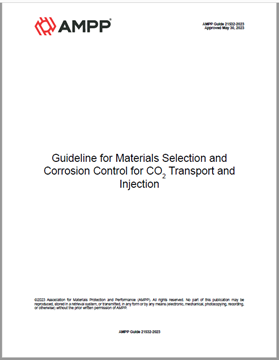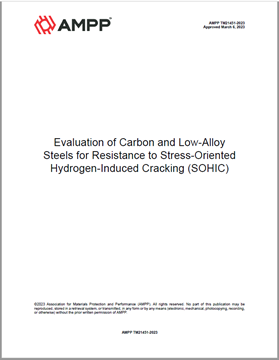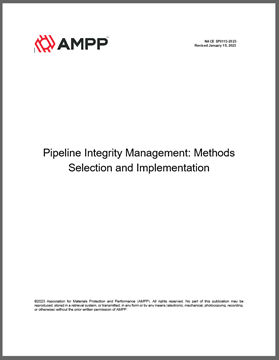Search
AMPP TM21453-2023, Laboratory Testing for Resistance to Environmentally-Assisted Hydrogen Stress Cracking in Welds
Also Purchased
AMPP Guide 21532-2023, Guideline for Materials Selection and Corrosion Control for CO2 Transport and Injection
Product Number:
AMPP Guide 21532-2023
Publication Date:
2023
$109.00
AMPP TM21451-2023, Evaluation of Carbon and Low-Alloy Steels for Resistance to Stress-Oriented Hydrogen-Induced Cracking (SOHIC)
Product Number:
AMPP TM21451-2023
Publication Date:
2023
$109.00
NACE SP0113-2023, Pipeline Integrity Management: Methods Selection and Implementation
Product Number:
NACE SP0113-2023
Publication Date:
2023
$109.00




